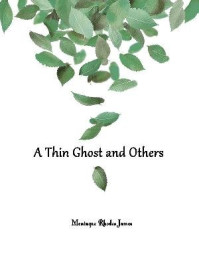




“O, mamma,” cried Minnie, “I have had a beautiful time. Uncle Harry is such a good teacher! And then he tells me such nice stories!”
Her cheeks rivalled the rose, and her eyes were sparkling with animation, as she said this, while her uncle, who, unobserved by her, had followed into the parlor, said, laughingly, “I have seldom found so good a listener. I have enjoyed the ride myself exceedingly. Come here, Minnie, and I will relate to you an amusing anecdote which I read a short time ago.
“In Persia, where they have splendid horses, all persons of the least distinction ride on horseback, and scarcely any one will deign to go the shortest distance on foot. The anecdote is related by a celebrated pomologist, concerning a horse employed in his nurseries for over fifteen years. His name was Old Charley. I was so much interested in the account of his sagacity, that I went to see him. The good animal was used for ploughing between lines of trees from three feet and a half to four feet apart, and moved with such precision and care as to run the plough and cultivator as near as possible to the trees, without ever hitting or injuring one of them. His owner told me Old Charley would go straight between the lines, turning at the end without any motion or word from the driver, with as much accuracy and skill as any human being could display, and without stepping over, or entangling his feet in, the traces in any manner whatever.”
After dinner, Minnie, in com pany with her mother and their visitors, went to the stable to try the effect of music on her favorite. She had scarcely struck a note, when he stopped eating, and began to move his feet rapidly, as if he were trying to dance.
Even the gentleman was surprised at this display, and declared that the pony must have been trained to do this by his former owner, while Minnie be came so much excited that she could scarcely control herself.
Mr. Henry Lee took the instrument himself, and found that the horse really had an idea of time, as the faster he played, the quicker were the pony’s movements. As soon as he stopped, the animal quietly went on munching his oats.
When her father returned from the city, Minnie ran to meet him, and relate the wonderful feats of her pet. To gratify her, he walked to the stable to see the operation repeated.
“Music has a wonderful influence on horses,” he remarked, as they were returning to the house, “especially martial music.”
“Do you remember the case of the old war-horse, Solus?” inquired his brother.
“Yes; and Minnie would like to hear it.”
The gentleman playfully pat ted her head, as he related the following anecdote:—
“Many years ago, an assistant of the contractors on a new turnpike used to ride to the field of labor a horse which had long carried a field officer, and who, though aged, still possessed a good deal of spirit. One day he was passing a large town where volunteers were at drill, on the Common. The moment Solus heard the drum, he leaped the fence, and was speedily at his old post, heading the drill, occupied by the commanding officer on parade.
“The young rider, dreadfully mortified, could not induce the horse to leave his honorable position till the volunteers left for the town; but, to the great amusement of the bystanders, headed all their manœuvres, prancing in true military style, as well as his stiffened limbs would allow him, much to the annoyance of the assistant, who did not feel very highly honored by Solus making a colonel of him against his will.”
The company all laughed at this story, which Mrs. Lee said reminded her of the effects of a trumpet on some captured horses, of which she had read.
“It seems,” she went on, “that in the early part of this century, the Tyrolese captured fifteen horses belonging to the Bavarian troops sent against them, and mounted them with fifteen of their own men, in order to go out again against the same troops. But no sooner did these horses hear the sound of their own trumpet, and recognize the uniform of their old friends, than they dashed forward at full speed, and, in spite of all the efforts of their riders, bore them into the ranks, and delivered them up as prisoners to the Bavarians.”
“That was rather a mortifying defeat,” suggested uncle Harry, “and only proves my theory correct, that horses are very susceptible to kind treatment, and have a wonderful memory, often recognizing their old masters after a separation of years.”
“Harry, do you remember father’s old black horse?” asked his brother.
“Of course I do; and the mile I ran for the doctor, when she snuffed that long brier up into her nose. I never saw father more alarmed. After he pulled the brier out, there was a whole pailful of blood, which frightened old Blackey so much that they were obliged to blindfold her.
“Poor creature! her afflictions followed thick and fast, for she had scarcely recovered from this, when the plank floor gave way in the stable, and she broke her leg.
“Father hated to part with her, but at last gave her to a man to use on his farm, who he knew would treat her kindly. He did not see her again for three years; but as soon as she heard his voice, when he was walking toward her in the pasture, she came quickly toward him, neighing with pleasure, and put her head lovingly on his shoulder. Then she turned round and looked at her colt, as if she wanted to introduce them.”
“She was a splendid animal in her prime,” rejoined Mr. Lee. “I have heard father say that she would travel off hour after hour, ten miles to the hour, without the spur or the whip; indeed, I never knew him to use the whip but once. Somehow, she got a habit of not standing quietly while he was getting into the chaise and preparing to start. One day she was unusually restive, when he told the man to go to the barn and bring a whip.
“Blackey knew what it meant, and, before a blow was struck, trembled from head to foot. Father cut across the back two smart blows, which proved so effectual a cure that she never troubled him afterward.”
“There is no animal more susceptible to kind treatment,” remarked uncle Harry. “I imagine half the obstinacy and unruly conduct of some horses is the result of cruelty and mismanagement. I can recall to mind at this moment a sad illustration of the latter course.
“A man near Boston used to catch his horse by taking to the field a quantity of corn in a measure. On calling to him, the horse would come up and eat the corn, while the bridle was put over his head. But the owner having deceived the animal several times by holding out the measure when it had no corn in it, the animal at length began to suspect the design. Coming up one day as usual, he looked into the measure, and finding it empty, turned round, reared on his hind legs, and, striking with his fore feet, killed his master.”
“That was indeed a fearful punishment for his deception,” returned Mrs. Lee. “It reminds me of an anecdote I read lately, of a horse belonging to an Irish nobleman, who became restive and furious whenever a certain individual came into its presence.
“One day, when this poor fellow happened to pass within its reach, the animal seized him with its teeth, and broke his arm. It then threw him down, and lay on him, when, every effort to get it off proving ineffectual, they were compelled to shoot it. Afterward the fact was discovered that the man had performed a cruel operation on the horse some time before, which it had never forgiven.”
“I know,” responded her husband, “that such cases have occurred, showing a spirit of revenge on the part of the animal; but I believe them to be rare, compared to the instances of gratitude for kindness.
“Professor Kruger, of Halle, relates a pleasing incident of this character. ‘A friend of mine,’ he says, ‘was one dark night riding home through a wood, and had the misfortune to strike his head against the branch of a tree, and fell from his horse, stunned by the blow. The animal, who was greatly attached to his master, immediately re turned to the house which they had left, about a mile distant. He found the door closed, and the family gone to bed. He pawed at the door, till one of them, hearing the noise, arose and opened it, and, to his surprise, saw the horse of his friend.
“‘No sooner was the door opened, than the horse turned round, and led the man directly to the spot where his master lay in a fainting fit.’”


